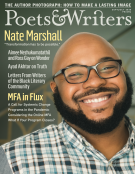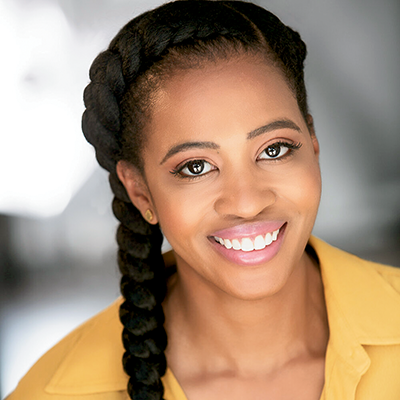I began an earlier draft of this letter by saying, “Today, so much of what we do, so much of who we are, is an act of resistance—writing is no different,” but I couldn’t get past that first sentence. Really? Writing is an act of resistance? Writing? Really? I couldn’t stop questioning myself. Whose voice is that? It certainly isn’t mine. That, I realize, is the voice of white supremacy. And it’s the loudest when I start talking about race—now isn’t that interesting?
In March, Pact Press, an imprint of Regal House Publishing, released my very first book, Your Black Friend Has Something to Say, a memoir in essays about the microaggressions I experienced from childhood to adulthood while living and working in predominantly white spaces. In the first three months after my book’s release I was terrified. It’s not easy for me to talk about race. It triggers the trauma I suffered growing up, when I was singled out, silenced, and shamed for being Black. If I was asked to talk about my book, then I was being asked to talk about race. I started having anxiety attacks, thinking I had made a horrible mistake. What was I thinking? I’d say to myself. Due to COVID-19, I was sheltering in place, stuck at home with nothing more than a few essentials and the thought of impending doom.
I had thought to blame my “fearful child,” as an old acting teacher of mine would have called it. Afraid, no doubt, of reliving the racial trauma she had once faced, my fearful child became my saboteur. She didn’t want to talk about the book. She didn’t want to think about the book. She didn’t want to promote the book. She shut down at the mere mention of the book. “She’s in the driver’s seat,” I told my therapist during a quarantine video session, “and I’m trying to get her buckled up in the back.” But my therapist disagreed. “I think white supremacy is in the driver’s seat,” she said, “and you’re trying to take control of the wheel.” In other words the problem isn’t with me. It’s with society. The moment she said it, tears fell from my eyes. I knew she was right. I knew it because my “fearful child” wants to protect me from trauma. White supremacy is the trauma. I was living in a traumatic state.
After the murder of George Floyd, however, something shifted inside of me, and for the first time in a long time, my true voice became louder than the voice of white supremacy. My true voice was with me when I wrote my book, and it’s with me now. It’s screaming, in fact. I’m back in the driver’s seat. The road is long and bumpy, and it’s not always easy to keep control of the wheel, but I’m the one driving, and I’m headed where I need to be and where I want to go. I haven’t just been working on a book these past few years. I’ve been working on myself, and the voice of white supremacy has been fighting me every step of the way—but I’ve been fighting back. Like all writers I have to resist self-doubt—but as a Black writer I also have to resist the continued taunts of the voice of white supremacy, because the last thing white supremacy wants is for Black people to have a voice. If you, too, hear the voice of white supremacy ringing in your ear, know that writing is resistance, because every time you sit down to write, your true voice becomes louder, stronger than his, and in the fight for racial justice we need all the voices we can get.
With love and admiration,
Melva Graham
Melva Graham lives in Los Angeles. Her debut essay collection, Your Black Friend Has Something to Say, was published by Pact Press, an imprint of Regal House Publishing, in March. Visit her online at melvagraham.com, and follow her @msmelvagraham.
(Photo: Photos by Jamaal)








